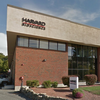Reflectance Medical Finds Major Commercial Partner
Since 2009, Reflectance Medical in Westborough has been working with a lean team and millions in federal and military grants to develop a next-generation medical sensor.
The UMass Medical School spin-out company is entering a new phase in its existence, according to Babs Soller, president, CEO and professor emeritus at the medical school.
"We've been an R&D company," Soller said. "As we started 2013, we started to move some of our efforts into commercialization."
And now that Reflectance has received several federal approvals and inked a key partnership with a much larger MetroWest company, it might not be long before its non-invasive sensors are being used in ambulances and emergency rooms across the country, as well as by the U.S. military.
MetroWest Partners
Earlier this month, Reflectance announced a development deal with Zoll Medical Corp., a Chelmsford-based developer of medical equipment, to integrate its sensors into several of Zoll's vital signs monitors and defibrillators, known as the Propaq M, Propaq MD and X Series platforms.
Zoll is a big firm: It brought in $524 million in revenue in 2011, and was acquired by a Japanese company last year for $2.2 billion.
"We were really pleased Zoll was the first major company to step forward," Soller said. "They're local, so that's nice, but the other reason is they're a unique company that makes patient monitoring equipment, but also therapeutic devices."
Monitoring vital signs is important, but Soller always envisioned her technology also being integrated with devices, like defibrillators, that can provide medical intervention based on those readings.
Jonathan A. Rennert, president of Zoll, said he has been aware of Soller's work since around the time he joined Zoll in 2008. The military is an important customer for Zoll, and since Soller was local and working with defense funding, the connection was bound to happen, he said.
"It's a small-knit community of folks who cater to the military," Rennert said. "We're always looking for new companies that are in the monitoring space that have come up with a technology to dig a little deeper into what's going on in the human body."
He said the geographic proximity of the two firms is a bonus. Zoll looks for what it believes is the best technology, regardless of where it's being made. But he said the short distance will help as the two begin to work on combining their devices.
"I think it's fortuitous we think the best-in-class technology happens to be a short drive away," he said.
Stabilizing Trauma Patients
Reflectance's sensors, which use infrared spectroscopy, have the capabilities of oximeters, which measure oxygen content in blood coming out of the heart. But they provide more frequent readings than other oximeters on the market, Soller said.
And what further distinguishes them is they also measure acidity levels in blood – which is important because a patient cannot be defibrillated with too low of a pH reading – as well as hematocrit levels, which indicate whether a patient's blood will clot well enough to handle a blood transfusion.
Those three indicators allow doctors and medical personnel to intervene before trauma patients go into shock.
Beyond the civilian medical market, the two companies will work together to produce a more rugged version of the sensor for the military that can withstand the vibrations of helicopter travel and other stresses.
What The Deal Means For Reflectance
As they developed their sensor, Soller and her team came to realize that they would need partners like Zoll for their product to gain traction in the market.
"I think what we realized as a small company was we weren't going to have the resources to sell and market our product ourselves," Soller said.
All of the settings in which she envisioned the sensor being useful have limited bedside space for new machinery.
"So the best approach for us was to find partners who had established sales forces in the field and then could have the ability to integrate our sensor with their product," she said.
Rennert hopes Zoll's partnership with Reflectance can help the smaller firm grow. He said Zoll has sold thousands of monitor-defibrillators to the military, where the products have become a "standard of care."
"It wasn't all that long ago we were in (Soller's) place," Rennert said. "We really got commercially started back in the mid-1980s."
Marketing Crash Course
As Reflectance begins to shift its focus towards the commercial market, Soller, who still sees herself as an academic at heart, is learning new things.
She laughed when recalling a week she spent in California with a team from Sotera Wireless, a ventured-backed medical device company that inked a development deal with Reflectance last year.
"I told them to give me a tutorial on marketing," she said. "That was definitely new for us."
The firm plans to stay lean for now (it has eight employees), leveraging the sales channels of its partners. The Reflectance team will be training and providing support to those salespeople, Soller said.











0 Comments